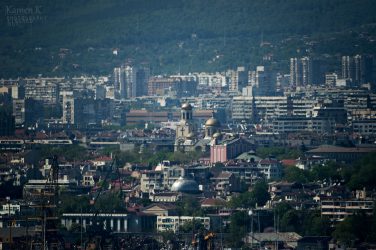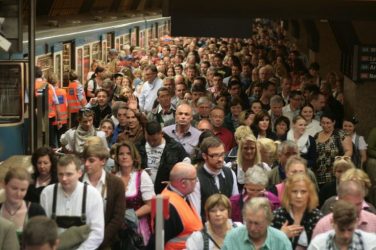Ever wondered where Europe’s leaders went to university and what they studied? Isabel Flanagan read through their CVs and shares with us key insights from her research.
Kofi Annan once said, ‘education is the premise of progress, in every society, in every family,’ but he is not the only one who reiterates the importance of education. I don’t know about you, but I find myself constantly bombarded with the message that education is a pinnacle building block to a person’s personal and intellectual journey.
When looking at our political leaders, their educational experiences still shape how we see them today. Angela Merkel famously took Physics and Chemistry at university; did this influence her rational and pragmatic approach to politics? Meanwhile, Boris Johnson studied Classics at Oxford; a background, his opponents say, is key to his privileged persona. These vague details of our leaders’ educations are known within each country, but what about the European level? Which universities did the leaders of the European Union come from? What subjects did they study? And what does the educational make-up of European leadership say about the EU today? I decided to conduct a brief overview of the European Council’s higher educational histories in order to shed light on the educational make-up of Europe’s leaders.
A range of educational backgrounds
The first thing I learnt was that there is no one educational path to the Europe’s top jobs. One may assume that all Council members completed higher education, but the Prime Minister of Sweden and the Prime Minister of Bulgaria both stopped their education after high school, instead going into the civil service or working with trade unions. Also, we cannot forget Slovenia’s Prime Minister who studied acting and had a professional comedy career before entering politics. So, there is really no one higher educational path which all European Counsellors completed.

If we were to highlight one degree which was the most common it would be law, with nine Council members holding a JD degree. Completing a masters is another common route, as eleven Council members competed an MA, MBA, MSc or equivalent. Yet, I cannot reiterate enough how varied the content matter of these degrees were. They included history, business administration, philosophy, social studies, public affairs, economics, international trade, physics, classics, public policy, European studies, and medicine. Subjects cross over from the arts to business management to science to medicine to law.
Studying abroad
One interesting find was whether a Council member had travelled abroad when studying. Sixteen Council members stayed within their home country while completing higher education and twelve studied abroad. Council members who studied abroad often went to other European universities – like the University College of London in the UK, University of Zargreb in Croatia, University of Hamburg in Germany, University of Basel in Switzerland or the Université Libre de Bruxelles in Belgium. One Council member even completed an Erasmus exchange during his studies. Notably, two Council members were actually educated outside of Europe, in the US, and attended the University of Maryland, the University of Pennsylvania, Harvard and Stanford. It is interesting to see this integration of thought across Europe, but also between Europe and the wider world.
There is no one pathway or place which shaped our European leaders.
Looking at the varied resumes of Europe’s leaders, it is clear that their educations took many forms. There is no one pathway or place which shaped our European leaders. Considering these educational histories really opened my eyes to how varied education can be, how people’s experiences are shaped by where they are and what they do – perhaps more so than what degrees they completed or what universities they went to. Just like the European Council itself, these leaders’ educational histories are a unique ensemble of different backgrounds, world views and expertise.
Cover Photo: paseidon (Pixabay), Pixabay Licence








